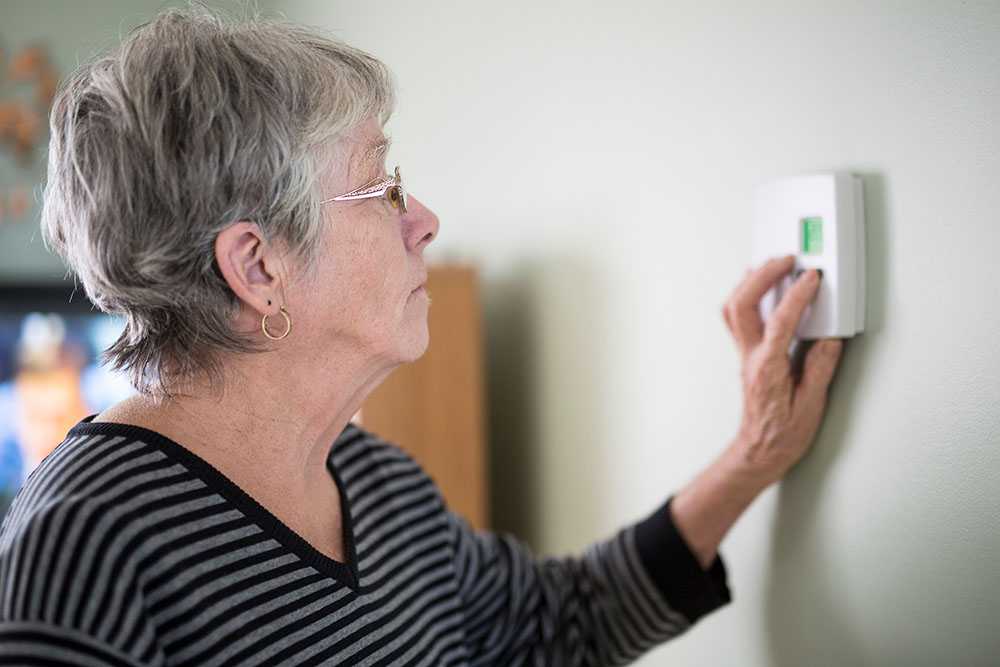Posted by Janine Griffiths
How do winter fuel payment cuts impact elderly people?

As winter approaches, many seniors face the dual challenge of colder temperatures and potentially reduced financial support due to proposed winter fuel payment cuts.
The government has previously announced that this essential benefit, which previously helped many older adults manage their heating costs, is set to be reduced. This is likely to place an additional burden on those already navigating fixed incomes and rising living expenses.
For vulnerable elderly individuals and their caregivers, maintaining a warm and safe living environment is crucial, not only for comfort but also for health and wellbeing.
In this blog, we’ll explore how these winter fuel payment cuts impact care seekers and offer practical tips to help manage heating costs and access additional support.
Understanding the winter fuel payment cuts
In July, the government announced new winter fuel payment cuts which means that the benefit would be means tested and restricted to those claiming pension credits.
However, the decision has received fierce backlash from MPs to the decision, and so the cuts will be subject to a vote on Tuesday September 10th.
The winter fuel allowance allowed pensioners to claim between £100 and £300 depending on the individual's age and whether the person lived alone.
If the cuts go ahead, only the poorest pensioners would receive additional help. The cuts would save over £1.4 billion for the government this financial year. It would also reduce the number of pensioners receiving payments by 10 million (from 11.4 million to 1.5 million).
While no firm decision will be made until September 10th, the proposals will undoubtedly cause concern for many care seekers.
How winter fuel payment cuts affect those receiving home care or live-in care
Winter fuel payment cuts can have a significant impact on individuals receiving home care or live-in care. For many elderly people, heating their homes during the colder months is essential for their health and wellbeing, but it also leads to higher energy bills. A reduction in the winter fuel payment will undoubtedly make it harder to cover these costs, putting extra strain on already tight budgets.
Those receiving care at home often face additional financial burdens, as they may need to keep their homes warmer for longer periods to ensure both their own comfort and that of their carers. The reduced payment can make it difficult to manage these higher heating costs, leading to difficult decisions about how to allocate limited funds.
This strain on finances can also make it more challenging to pay for essential care services. With a significant portion of income going toward energy bills, families may find it harder to afford the rising costs of home care or live-in care, potentially compromising the quality of care that either they or their loved ones receive. In such cases, exploring additional financial support options becomes critical to maintaining both a warm home and adequate care during the winter months.
Additionally, inadequate heating can have serious health consequences for elderly individuals, particularly those with chronic health conditions or mobility issues. Cold homes increase the risk of respiratory problems, weakened immune systems, and even hypothermia, making the winter fuel payment cuts a direct threat to their overall health and wellbeing.
What financial help is available to help care seekers in the winter?
The financial help available to you depends upon your circumstances. A significant portion of the government assistance offered to pensioners during the winter is aimed at those receiving benefits, but they are worth exploring if you are on a very low income.
Pension Credits
Pension credit is financial help that is available to those that are over the state pension age (66) and on a low income.
You can still receive pension credit even if you have other income, a pension, savings or own your own home, as long as you have £10,000 or less in savings and investments.
Cold Weather Payments
Cold weather payments are also available to those receiving pension credits. With this type of payment, the government will pay £25 for each 7-day period of very cold weather between 1 November 2024 and 31 March 2025.
If you are on universal credit, pension credit, or support for mortgage interest (SMI) you may be eligible for this payment.
Housing Support Fund
This fund is available for anyone who is vulnerable and unable to pay for essentials such as energy, water bills and food. You do not have to be in receipt of benefits to be eligible for this fund. Housing support is available through your local council. Please note that the exact eligibility criteria, application process and final decision making will depend on your local authority.
Warm Homes Discount
This is a one-off discount of £150 which your energy supplier will credit to your bill. It is usually given to those on a low income, or those that get the guarantee element of pension credit. The guarantee element of pension credit is a government benefit that ensures your income doesn't fall below a certain amount if you are 66 years or older. If your weekly income is less than a set amount, the government tops it up to reach that level. To find out more about what is available to you, contact your utility company.
Energy Supplier Grants
This varies from provider to provider. If you are struggling to pay your energy bills, your supplier may offer hardship funds or grants. Some utility companies may also provide free insulation or heating improvements.
Essential tips for seniors
The proposed winter fuel payment cuts are likely to be a major cause of concern for older people. So, if you are worried about how these cuts affect you, there are a number of things that you can do to mitigate the impact of these cuts. We discuss this below:
Energy-saving tips
By taking small, manageable steps, you can reduce your energy usage without sacrificing warmth. Simple measures like insulating your windows, using energy-efficient appliances, and closing off rooms you don’t use can make a big difference. These adjustments can help lower heating costs while keeping your home cosy.
Home energy assessments
Arranging a free home energy assessment can provide valuable insights into how to improve your home's efficiency. Experts can offer personalised advice on the best ways to keep your home warmer and more energy-efficient, giving you peace of mind and practical support in reducing bills.
Alternative heating options
If central heating becomes too costly, there are safe and affordable alternatives to consider. Portable heaters, heated blankets, or even thermal wear can provide targeted warmth, helping you stay comfortable without the worry of rising energy costs.
What other options are available for those receiving home care or live-in care?
The video below gives a quick overview of some of the financial help available to those receiving home care.
If you are self-funding your own care you can also check out our blog, ‘Ultimate guide to self funding care’, that provides more information on the financial help available for self-funders.
As winter approaches, it’s more important than ever to prepare for the impact of winter fuel payment cuts. Staying proactive about managing heating costs can make all the difference in keeping your home warm and comfortable. Simple steps like improving energy efficiency and exploring alternative heating options can help ease the burden, but it’s also vital to reach out for support when needed.
There are many resources available to help seniors and caregivers through this challenging time—don’t hesitate to take advantage of them. Whether it’s financial assistance, home energy assessments, or advice on reducing bills, these tools are here to ensure your comfort and safety this winter.
Looking for care solutions?
If you’re feeling uncertain about how to manage or need extra help, Autumna is here for you. Our services can help you find the right care solutions for yourself or your family.
Whether you are looking for retirement homes, home care services, or residential care where food, accommodation, activities and utility bills are included in the cost, our directory can help you to find what you need easily and quickly.
Simply head over to the search bar on our homepage, select the care service you need and type in your preferred location to get started.
If you are still struggling to identify the type of care you need, we can help! Simply use our FREE Shortlisting tool and answer a few questions about your preferences. We can then send you a list of care providers tailored to your needs.
You can also call 01892 335 330 and speak to a knowledgeable advisor who can provide further assistance.
Receive a Free Care Provider Shortlist!
Let our expert team of advisers get your search off to a great start.
Tell us a little about your needs and we'll send you a bespoke shortlist of care providers! Click the button below to begin, it takes just a few minutes.
Other articles to read
From the blog

Older Persons Care Advice
How to shortlist care homes in Exeter
April 17th, 2025
Looking for an adult day care centre near you? Discover how to find safe, joyful care for your loved one—and support for yourself—on Autumna.

Older Persons Care Advice
What is Discharge to Assess?
April 16th, 2025
Discover how Discharge to Assess (D2A) supports faster recovery, reduces hospital stays, and how Autumna helps simplify finding the right care.

Older Persons Care Advice
What are the benefits of person-centred care?
April 9th, 2025
Discover the benefits of person-centred care—from improved wellbeing to better outcomes—for individuals, families, and care providers alike.
Frequently Asked Questions
Under the rules announced in July 2024, eligibility for winter fuel payments depends on your age, income, and whether you receive pension credit or other qualifying benefits. However, this will be subject to a vote on September 10th. Therefore, it is best to check the latest government guidelines or speak with your local benefits advisor.
Under the old rules, those who move abroad will only be eligible for winter fuel payments if the following apply:
- you moved to an eligible country before 1 January 2021
- you were born before 23 September 1958
-you have a genuine and sufficient link to the UK
- this can include having lived or worked in the UK, and having family in the UK
However, please note these rules are changing and will be updated in September 2024. You can find more information here: Winter Fuel Payment: If you live abroad - https://www.gov.uk/winter-fuel-payment/if-you-live-abroad#:~:text=If%20you%20do%20not%20live,having%20family%20in%20the%20UK
Winter fuel payments are annual and currently pay between £100-£300 depending on a number of factors, such as age. Cold Weather Payments are paid during periods of extreme cold weather, typically when temperatures fall below zero for seven consecutive days.






